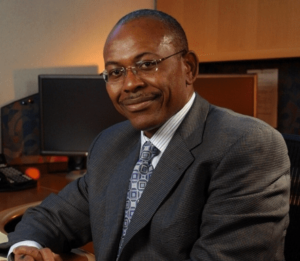By ASHG President Charles Rotimi, PhD

This is an unprecedented time in our society and our science of human genetics and genomics. Unsurprisingly, attention and focus on diversity, equity, inclusion, and race have moved even closer to the center of national and international discussions. The human genetics and genomics community has increasingly been engaged on the importance of these issues through our research as well as advocacy. I am heartened by the efforts underway, yet I recognize there is tremendous work that remains. In my role as president of ASHG and as an individual researcher, I am committed to moving diversity, equity, and inclusion beyond these necessary discussions to actions that support our vision of people everywhere realizing the benefits of human genetics and genomics research.
At the Society, we continue to enable members to engage on these issues in a variety of ways from increased content at the annual meeting, taking on a year-long initiative that seeks to reckon with and acknowledge past harms in human genetics, and to welcoming important research findings on the evolving use of ancestry, ethnicity, and race in human genetics in the American Journal of Human Genetics (AJHG) and Human Genetics and Genomics Advances (HGG Advances). Additionally, we are proud of our ASHG members who are helping to lead and shape the work of a National Academies committee to assess the existing methodologies, benefits, and challenges in the use of race, ethnicity, and other population descriptors in genomics research, and to discuss how the use of population descriptors could be improved upon in the future. The committee’s work is timely and important, and as ASHG’s Board of Directors is very supportive of these dialogues, I was pleased to participate in the April public workshop held on this topic.
As geneticists, we understand that greater diversity, equity, and inclusion in our research is a scientific and social justice imperative. We also understand that race and ethnicity are social constructs, and ‘racial’ and ‘ethnic’ categories are currently used as highly imperfect proxies for human genetic variation. With these tenets in mind, the human genetics and genomics field continues to rapidly evolve generating new knowledge and scientific innovation, yet many hurdles such as grappling with issues of race and equitable access to the gains of genomic medicine remain.
We must become better at communicating within our scientific community and beyond it what our science tells us: genetic variation is the hallmark of our genomes, and it is a continuum. However, when we use labels such as Africa (geography), Blacks, Whites, Asians, or Hispanics, we can radically distort global distribution of human genetic variations that can have serious clinical implications.
For example, the worldwide distribution of genetic variants underlying several monogenic diseases are known to be geographically restricted but does not perfectly overlap with social grouping of populations such as “African”. Even though sickle cell anemia is more frequently observed in populations of African ancestry, it is found in several non-African ancestry populations around the world. However, because sickle cell anemia is often labeled as ‘Black or African disease’, it is sometimes missed diagnosed in individuals who do not look phenotypically African or Black. It is also why if you put up a slide in a presentation and ask an audience where the most people have sickle cell disease and mention South Africa and Greece, several members of the audience will pick South Africa, but the correct answer is Greece. As genetics and genomics professionals, we need to be more precise with our description of our study populations. Otherwise, we will play into social labeling, giving them more genetic and medical oxygen. A big challenge for our field is that we need to be more descriptive and describe populations in a meaningful way. It has taken many years to garner broad acceptance that race shouldn’t be treated as a biological variable. Thus, we can’t lose ground by using imprecise language to group human beings. Because I am interested in the consequences of what we do, I believe not only that we must address race in genetics, but we must also root out racism. There is undoubtable evidence that racism in science is real. We will not be able to change the issue purely by using data. The use or misuse of racial classifications with genetic innuendo are a problem and have the potential to perpetuate harm.
I am hopeful for the future, but we are not there yet. We must keep trying within our realm of human genetics and genomics research, and we need to strive to create change in a collective and measurable way. We may not be able to solve the issue of racism and greater human forces, but we have a scientific and moral obligation to address it in our field. Through ASHG’s Expert Panel on Historic Injustices and Scientific Racism, we are raising the mirror on ourselves and the role we’ve played in a history of past harms linked to racism, eugenics, or other systemic forms of injustice. Topics and a dialogue of this nature will be included at the upcoming ASHG 2022 Annual Meeting in Los Angeles. It is critical to continue to create venues for these conversations, now and well into the future.
We have an opportunity, now more than ever, where people are listening, and we can encourage humanity to be seen as a beautiful mosaic of genetic variations that changes with each birth and death. We need to cherish our one humanity and study our many genomes in history, health and disease. Truly, this is a tremendous strength.
As ASHG continues its leadership work to advance the benefits of human genetics and the inherent sameness and diversity of humankind, we urge your action, too. Indeed, I challenge you, our members: how will you take a small step each day to communicate the unity of our shared humanity and the value and beauty of human genetic variation?
